人教版八下英语Unit 9 Have you ever been to a museum全单元课件(130张ppt)
文档属性
| 名称 | 人教版八下英语Unit 9 Have you ever been to a museum全单元课件(130张ppt) | 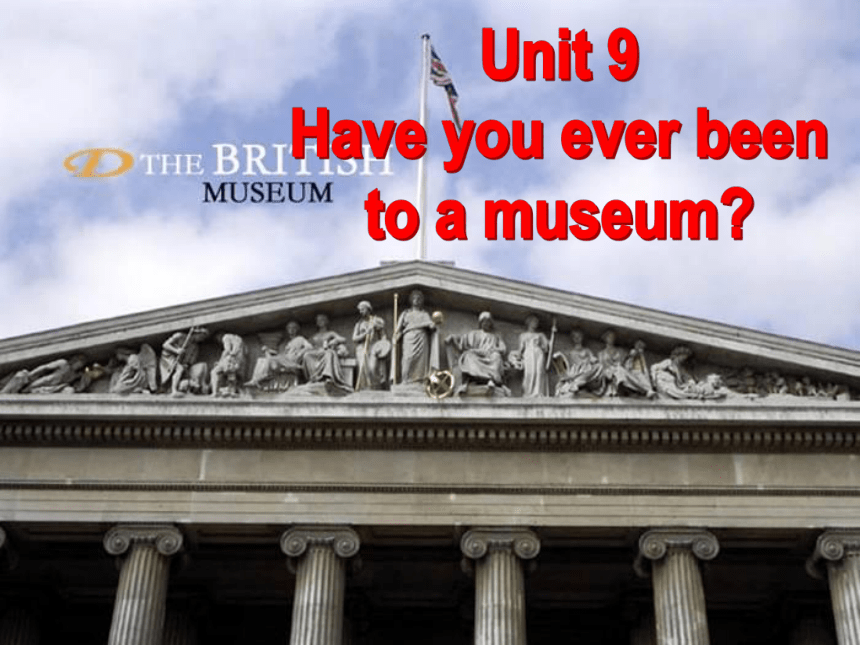 | |
| 格式 | zip | ||
| 文件大小 | 24.2MB | ||
| 资源类型 | 教案 | ||
| 版本资源 | 人教新目标(Go for it)版 | ||
| 科目 | 英语 | ||
| 更新时间 | 2021-05-27 21:42:28 | ||
图片预览

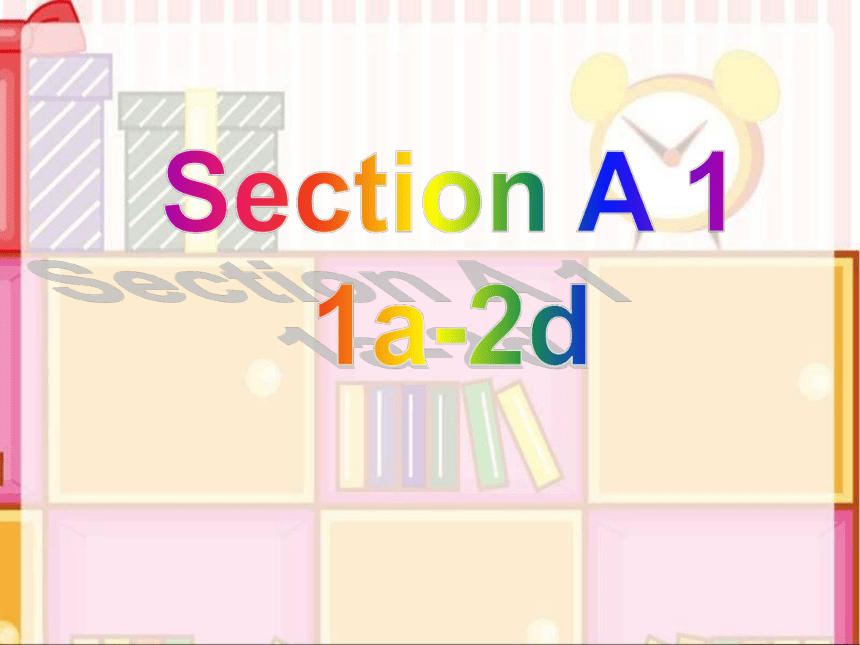
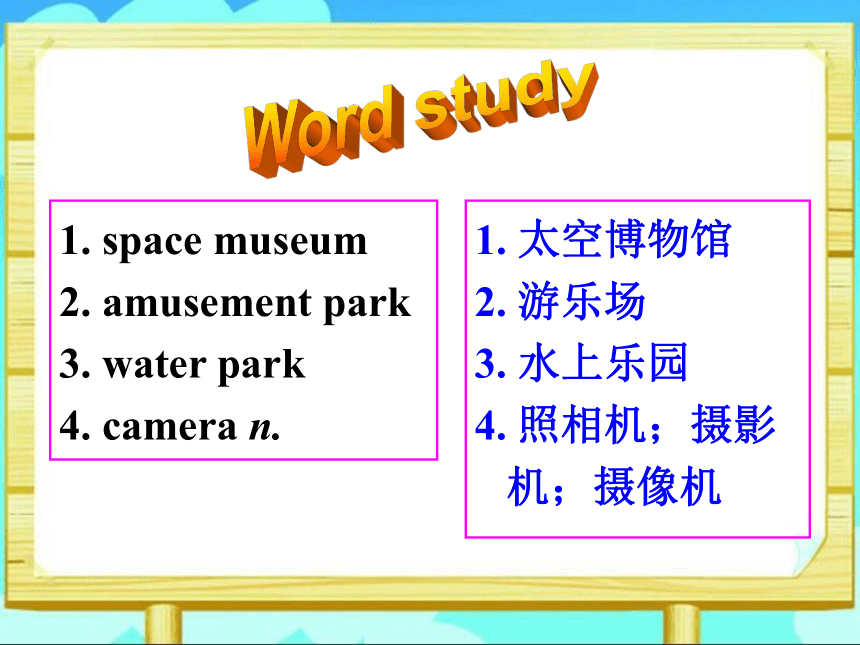
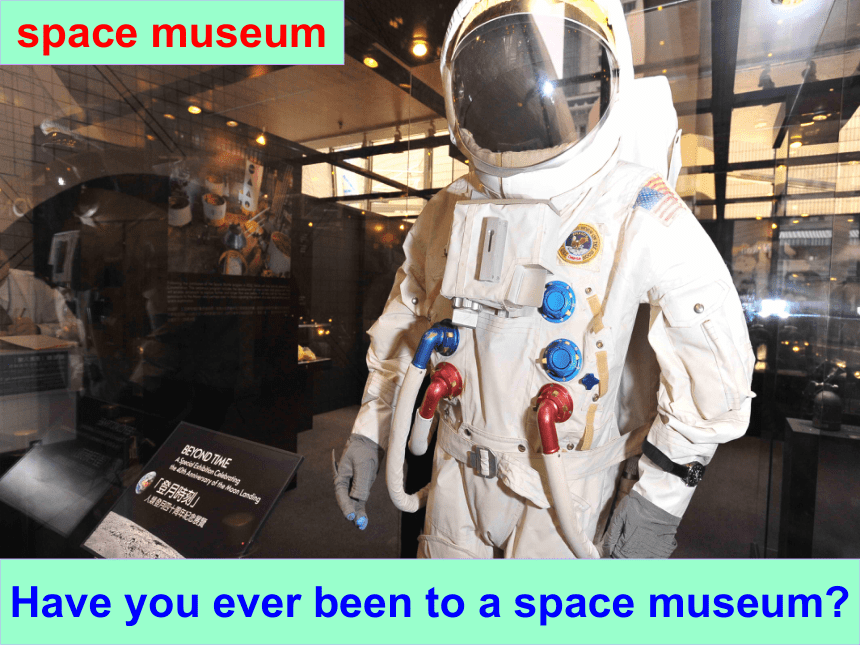
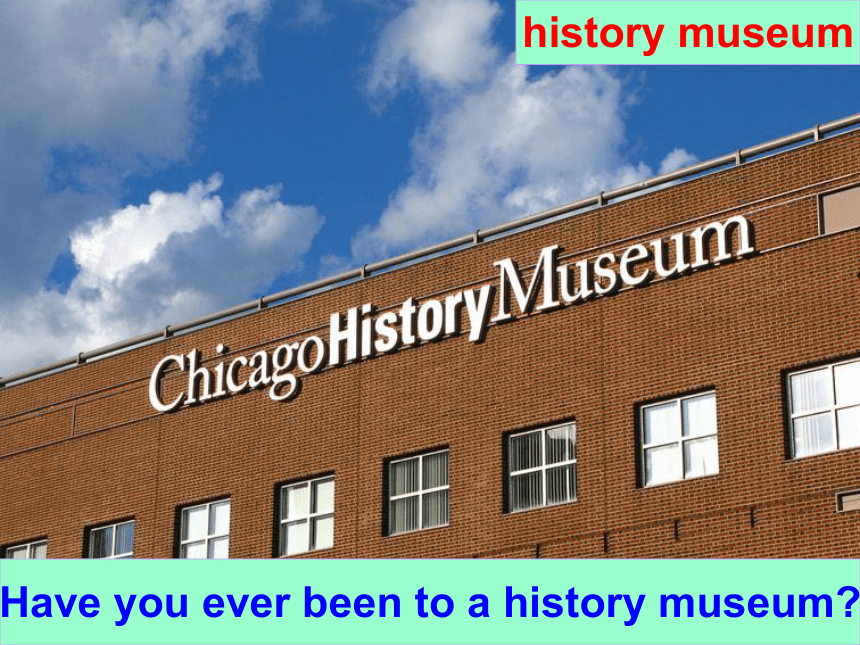
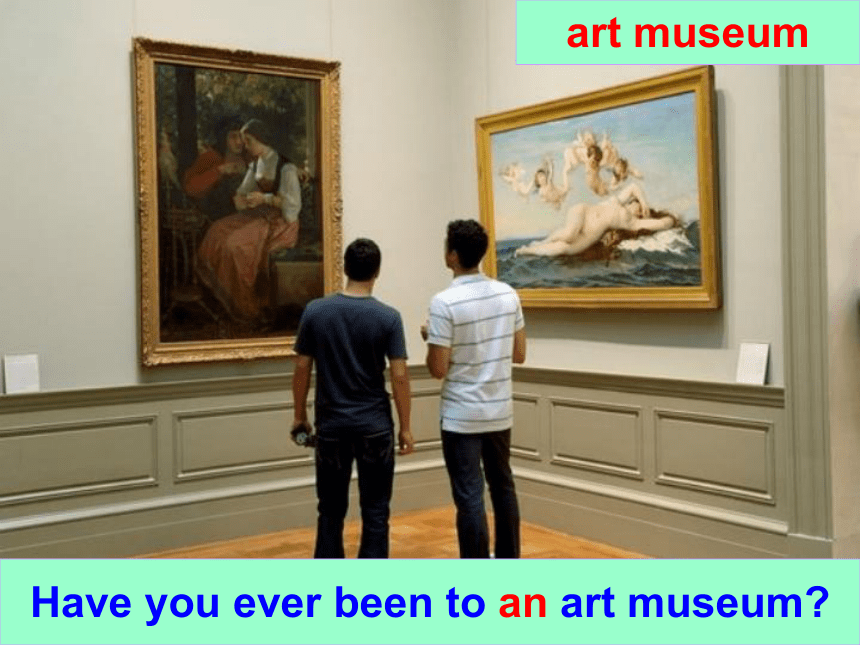
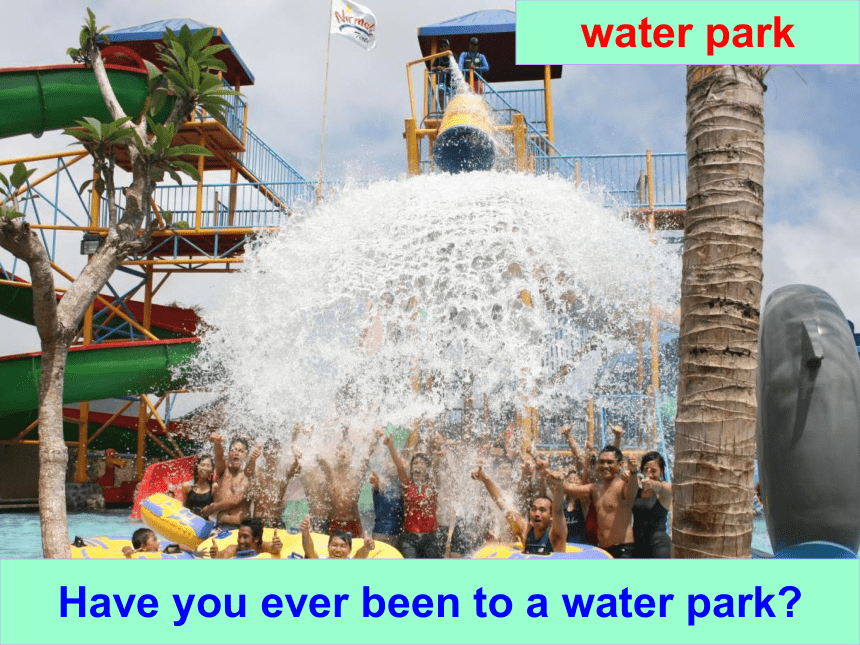
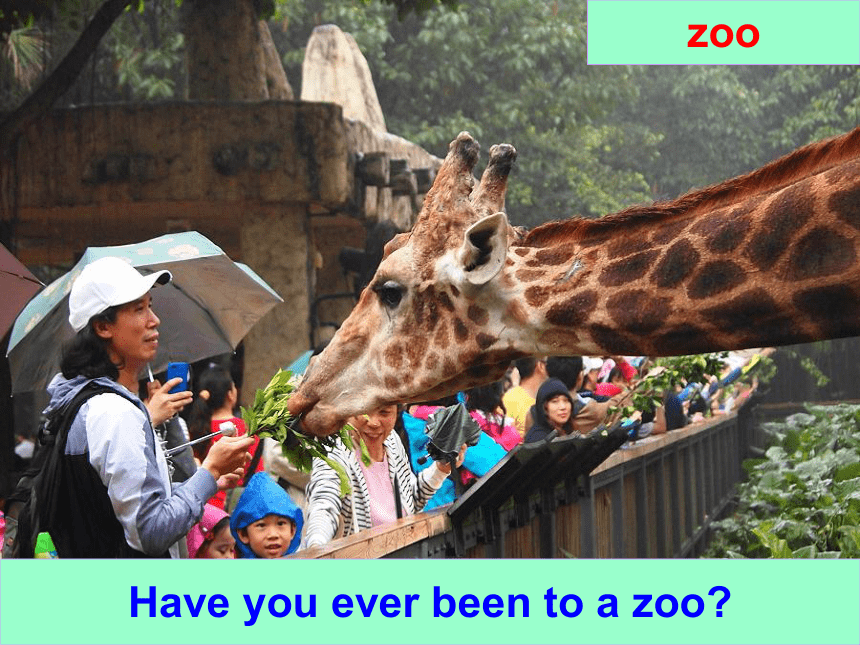
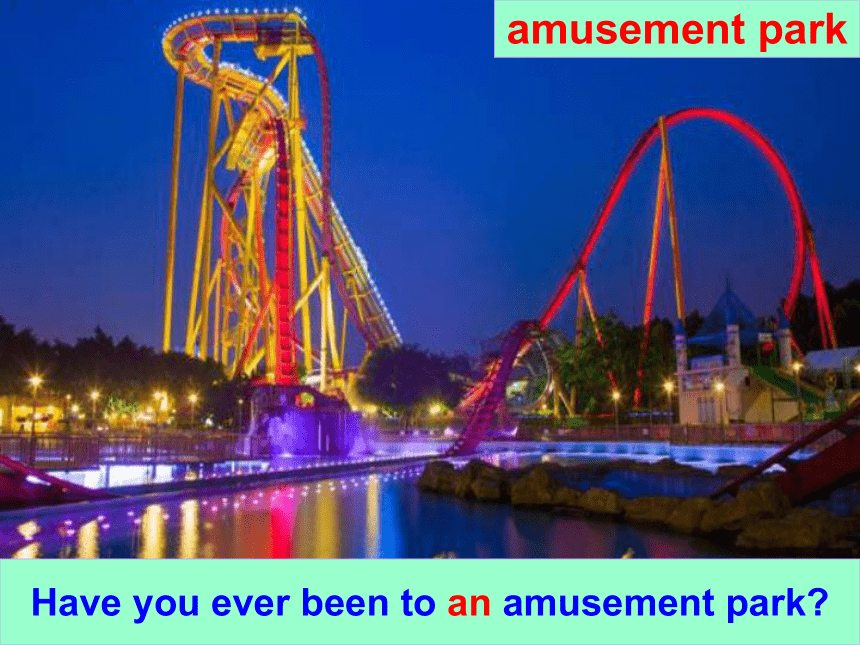
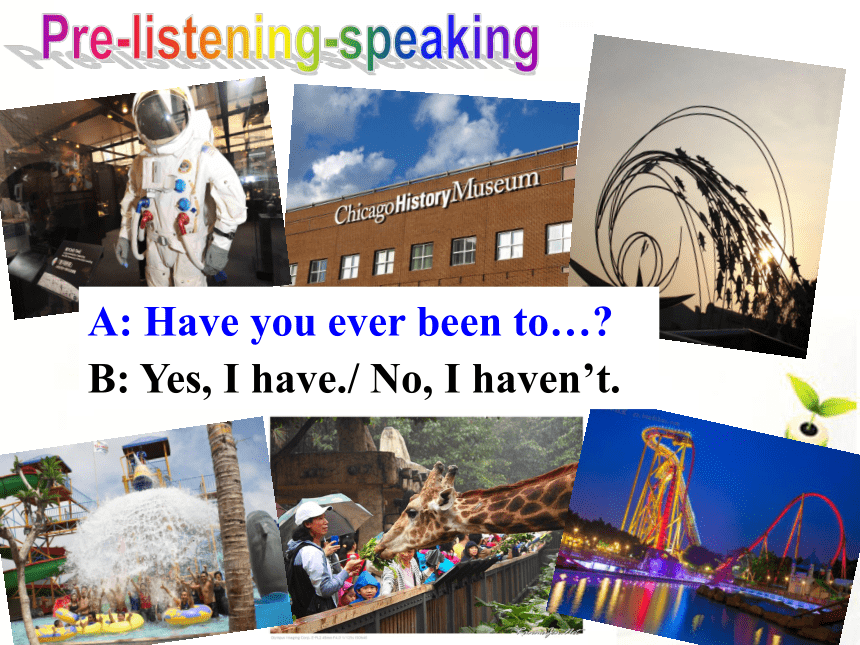
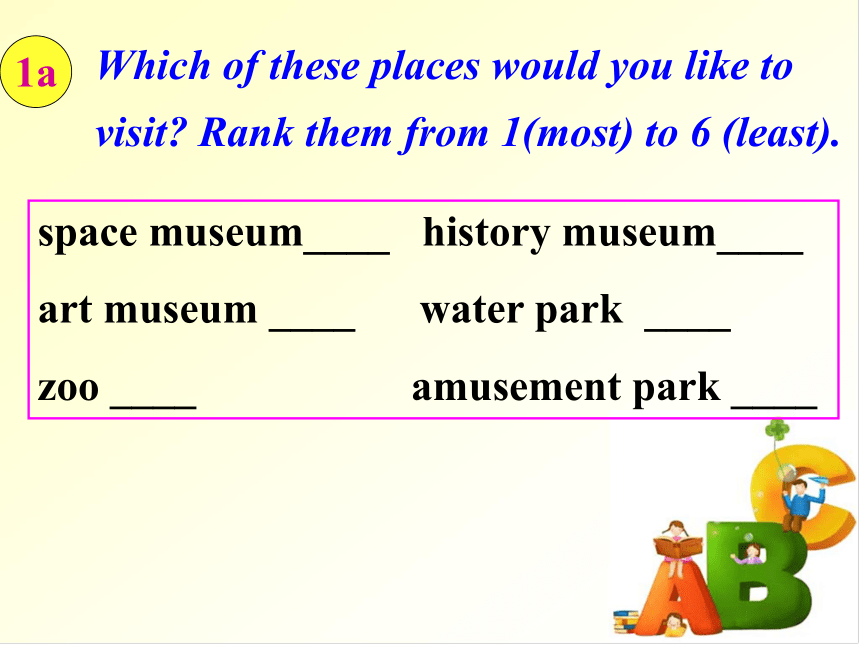
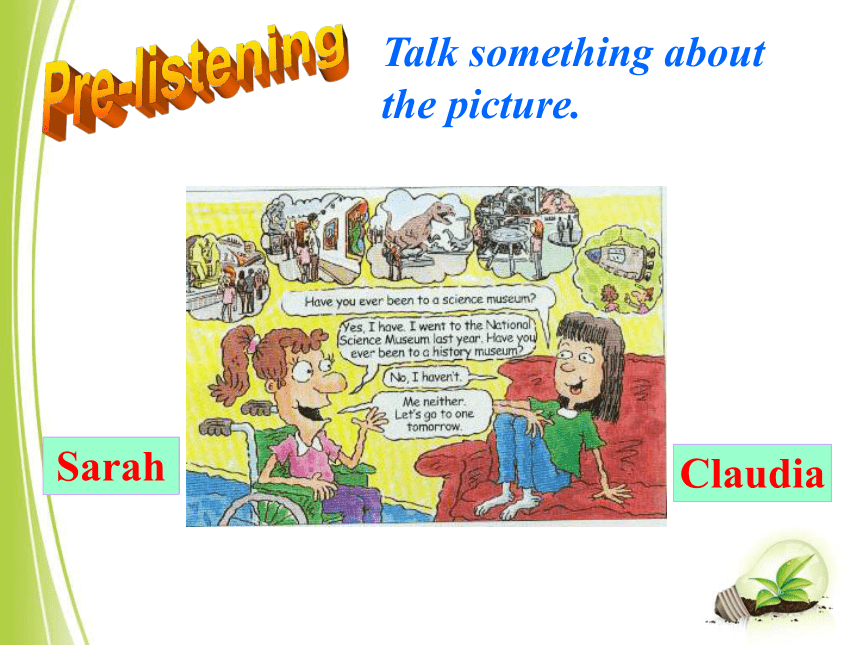
文档简介
(共130张PPT)
space
museum
amusement
park
water
park
camera
n.
太空博物馆
游乐场
水上乐园
照相机;摄影机;摄像机
space
museum
Have
you
ever
been
to
a
space
museum?
history
museum
Have
you
ever
been
to
a
history
museum?
art
museum
Have
you
ever
been
to
an
art
museum?
water
park
Have
you
ever
been
to
a
water
park?
zoo
Have
you
ever
been
to
a
zoo?
amusement
park
Have
you
ever
been
to
an
amusement
park?
A:
Have
you
ever
been
to…?
B:
Yes,
I
have./
No,
I
haven’t.
Which
of
these
places
would
you
like
to
visit?
Rank
them
from
1(most)
to
6
(least).
1a
space
museum____
history
museum____
art
museum
____
water
park
____
zoo
____
amusement
park
____
Sarah
Claudia
Talk
something
about
the
picture.
Choose
the
best
answer.
When
did
Sarah
visit
the
National
Science
Museum?
A.
Today
B.
Yesterday
C.
Last
year
2.
When
did
Claudia
visit
the
nature
museum?
Last
year
B.
Last
summer
C.
Last
school
trip
3.
What
may
the
relationship
be
between
the
two
speakers?
A.
Friends
B.
Teacher
and
student
C.
Mother
and
kid.
Listening
1
Science
museum
History
museum
Art
museum
Nature
museum
Space
museum
Claudia
Sarah
√
√
√
√
√
√
Listening
1
1b
Listen.
Have
these
students
ever
been
to
these
places?
Check
(√)
the
boxes.
Ask
and
answer
questions
about
the
places
in
1b.
A:
Let’s
go
somewhere
different
today.
B:
OK.
Where
do
you
want
to
go?
A:
Have
you
ever
been
to
the
space
museum?
B:
No,
I
haven’t.
How
about
you?
A:
…
Listening
2
2a
Look
at
the
map
of
the
town.
Listen
and
circle
the
places
you
hear.
Conversation
1
1.
Tina
went
to
the
space
museum
last
year.
T/F
2.
John
has
never
been
to
the
space
museum.
T/F
3.
They
are
going
to
take
the
subway.
T/F
Listening
2
Listen
again
and
circle
T
for
true
or
F
for
false.
2b
Conversation
2
1.
Linda
has
been
to
the
amusement
park.
T/F
2.
Linda
went
to
the
amusement
park
yesterday.
T/F
3.
Linda
is
going
to
the
amusement
park
again
by
bike.
T/F
Conversation
3
1.
Frank
had
a
great
time
at
the
water
park.
T/F
2.
Frank’s
friend
has
never
been
to
the
water
park.
T/F
3.
Frank
and
his
friend
are
going
skating.
T/F
Look
at
the
map
in
2a
and
make
conversations
about
the
places.
2c
A:
Have
you
ever
been
to
the
space
museum?
B:
Yes,
I
have.
How
about
you?
A:
No,
I
haven’t.
B:
Oh,
it’s
fantastic.
Let’s
go
tomorrow.
A:
OK.
How
are
we
going
to
get
there?
B:
We
can
take
the
subway.
极好的
2d
Role-play
the
conversation.
I
went
to
the
film
museum
last
weekend.
Have
you
ever
been
there?
…
Yes,
I
have.
I
went
there
back
in
April.
…
1.
I
learned
about
the
inventions
that
led
to
color
movies,
too.
我还了解了一些发明,它们成就了彩色电影。
此处learn是“了解;获知;得知”的意思,由介词about或of引入所获知的具体内容。例如:
The
children
were
all
shocked
to
learn
of
the
death
of
their
headmaster.
得知校长去世,孩子们都十分震惊。
I
only
learned
about
the
accident
later.
我只是后来才得知了事故的情况。
2.
I’ve
never
been
camping.
我从未野营过。
此句为现在完成进行时。这一时态的结构为“have
been
+
现在分词”,表示从过去某一时刻延续至今的动作。在本句中,说话人使用这一时态来强调自己至今从未有过野营的经历,欠缺这方面的经验。又如:
He’s
been
watching
TV
all
afternoon.
他一下午都在看电视。
We’ve
been
living
like
this
ever
since
the
birth
of
my
little
brother.
自打我小弟弟出生,我们就一直这样生活。
我去过北京两次。
I
______
______
_____
Beijing
twice.
2.
大声读书是一种学习英语的好方法。
Reading
aloud
__
____
____
____
to
learn
English.
3.
昨天他没有去那,我也没去。
He
didn’t
go
there
yesterday.
_____
_________.
have
been
to
a
good
way
to
Me
neither
4.
我了解了一些电影的知识。
I
______
______
some
information
about
movie.
5.
他的粗心导致了这次失败。
His
carelessness
____
___
this
failure.
learned
about
led
to
选用have,
has填空:
1.
I
_______
told
him
the
news.
2.
She
________
come
back
from
school.
3.
You
________
won
the
game.
have
has
have
按要求改写下列各句:
4.
They
have
bought
a
computer.
(改成否定句)
___________________________________
5.
He
has
lost
his
book.
(先改成一般疑问句,再作肯定与否定回答)
___________________________________
___________________________________
They
haven’t
bought
a
computer.
Has
he
lost
his
book?
Yes,
he
has.
No,
he
hasn’t.
1.
Practice
the
dialogue
and
remember
the
language
points.
2.
Preview
the
next
lesson.
A:
Have
you
ever
been
to…?
B:
Yes,
I
have./
No,
I
haven’t.
Name
the
kinds
of
museums
that
you
know.
museum
history
museum
computer
museum
art
museum
nature
museum
science
museum
space
museum
film
museum
American
Computer
Museum
the
International
Museum
of
Toilets
in
India
Hangzhou
National
Tea
Museum
Read
the
article
and
match
the
words
with
its
meaning.
progress
rapid
unusual
peaceful
improve
invented
make
sth.
better
become
better
uncommon
quiet
made
quick
invent
v.
发明;
创造
unbelievable
adj.
难以置信的;
不真实的
progress
v.&
n.
进步;
进展
rapid
adj.
迅速的;
快速的
tea
set
茶具
social
adj.
社会的
peaceful
adj.
和平的;
安宁的
performance
n.
表演;
演出
perfect
adj.
完美的;
完全的
tea
art
茶艺
itself
pron.
(it的反身代词)它自己
collect
v.
收集;
采集
toilet
n.
坐便器;
厕所
unusual
adj.
特别的;不寻常的
(
)
1.
American
Computer
Museum
only
has
information
about
different
computers
there.
(
)
2.
Ken
thinks
computers
will
do
more
work
in
the
future.
F
T
(
)
3.
International
Museum
of
Toilets
is
a
very
unusual
museum.
(
)
4.
India
has
the
most
advanced
toilet.
(
)
5.
Linlin
didn’t
know
why
her
grandpa
loved
drinking
and
collecting
tea
set.
T
F
F
1.
Which
three
museums
do
the
students
talk
about?
The
American
Computer
Museum,
the
International
Museum
of
Toilets
and
Hangzhou
National
Tea
Museum.
2.
What
does
Ken
say
about
the
American
Computer
Museum?
It’s
unbelievable
that
technology
has
progressed
in
such
a
rapid
way.
3.
What
can
we
learn
at
the
International
Museum
of
Toilets?
We
can
learn
the
history
and
development
of
toilets.
4.
Why
is
the
Hangzhou
National
Tea
Museum
a
nice
place
to
enjoy
tea?
Because
it’s
a
relaxing
and
peaceful
place
near
a
lake.
5.
What
do
you
think
is
the
most
interesting
thing
about
each
museum?
1.
The
most
interesting
museum
I’ve
been
to
is
the
American
Computer
Museum.
多音节词和部分双音节形容词最高级加most构成,前面加the。如:
the
most
beautiful
girl
2.
The
old
computers
were
much
bigger.
much可修饰形容词比较级,表示……得多。
如:
much
richer
a
little,
even,
a
bit也可以修饰形容词比较级。
3.
I
wonder
how
much
more
computer
will
be
able
to
do
in
the
future.
不知道将来电脑还能够做些什么事情呢。
1)wonder
表示“
(对某事)感到疑惑;想要
知道;想弄明白;琢磨”,后面常接由what,
how,
who
或者if/whether引导的宾语从句。
e.g.
I
wonder
how
they’re
getting
on.
我想知道他们现在过得怎样。
I
just
wonder
if
they’ve
arrived
safely.
我就想知道他们是否安全抵达了。
2)
此句从句部分的原始结构是:
How
much
more
will
computers
be
able
to
do
in
the
future?
是对陈述句Computers
will
be
able
to
do
(much)
more
in
the
future.(电脑将来能够做更多的事情。)的提问。由于充当了宾语从句,
疑问结构改成了陈述结构:
how
much
more
computers
will
be
able
to
do
in
the
future,
即:
将助动词还原到陈述句的位置。
e.g.
I
don’t
know
when
he
will
come.
我不知道他什么时候来。
I
don’t
know
where
he
lives.
我不知道他住在哪里。
4.
It
also
encourages
governments
and
social
groups
to
think
about
ways
to…
encourage
sb.
to
do
sth.
鼓励某人做某事
e.g.
My
father
encouraged
me
to
take
part
in
the
sports
meeting.
父亲鼓励我参加运动会。
5.
Watching
the
tea
preparation
is
just
as
enjoyable
as
drinking
the
tea
itself.
看沏茶的过程和饮茶本身一样令人愉快。
-able是一个典型的形容词后缀,
可加在动词之后,
表示“可…..的;
能够……的”。此处enjoyable(能使人快乐的;
令人愉快的)
便是一例,
再如:drinkable(可饮用的),
washable(可洗的),
readable(可读的),
usable(可用的;
可使用的)等等。
1.
Remember
the
words
and
expressions.
2.
Review
the
next
lesson.
Unit
9
Have
you
ever
been
to
a
museum?
Where
do
you
want
to
go?
I
want
to
go…
Do
you
want
to
go
to…?
Summer
vacation
is
coming,
Have
you
ever
been
to
the
Great
Wall
?
Yes
I
have.
/No,
I
haven’t.//No,
never.
你曾经去过…吗?
Thailand
Have
you
ever
been
to
Thailand?
Yes,
I
have.
/
No,
I
haven’t./No,
never.
Have
you
ever
been
to
Hainan
Island?
Yes,
I
have./No,
I
haven’t./No,
never.
zoo
Have
you
ever
been
to
…?
Yes,
I
have.
/
No,
I
haven’t.
/No,
never.
space
museum
Have
you
ever
been
to
…?
Yes,
I
have.
/
No,
I
haven’t.
/No,
never.
water
park
Have
you
ever
been
to
…?
Yes,
I
have.
/
No,
I
haven’t.
/No,
never.
Amusement
park
Have
you
ever
been
to
…?
Yes,
I
have.
/
No,
I
haven’t.
/No,
never.
Have
you
ever
been
to
a
science
museum?
Yes
I’ve
been
to
a
science
museum.
/
No,
I’ve
never
been
to
a
science
museum.
Have
you
ever
visited
the
space
museum?
Yes,
I
have.
I
went
there
last
year./
No,
I
haven't.
I’ve
been
to
the
art
museum
many
times.
Me,
too.
And
I’ve
also
visited
the
nature
museum.
I’ve
never
been
to
a
water
park.
Me
neither.
Grammar
Focus
现在完成时由主语+have/has+过去分词构成。
其主要用法如下:
Grammar
Focus
结构:
主语+
have
/
has
+
动词的过去分词
一般疑问句:
have
/
has
…
?
Yes,
I
have.
No,
I
haven’t.
Yes,
she
has.
No,
she
hasn’t.
Review
现在完成时表示过去发生或完成的某一动作对现在造成的影响或结果。
如:Have?you?read?that?story?你读过那个故事吗?(“读”这一动作发生在过去,对现在造成的影响是:是否知道故事的内容。)???
I?have?bought?two?apples.?我买了两个苹果。?(“买”这一动作发生在过去,对现在造成的结果是:拥有两个苹果。)?
1.
在现在完成时中?ever,?never,?just,?already,?yet在用法和意思上有什么区别??
在学习这一概念的同时,还应注意常与现在完成时连用的几个副词:already,
just,
ever,
yet,
never等。already,
just多用于肯定句中,ever,
yet,
never多用于疑问句和否定句中。
如:I?have?already?finished?my?homework.
我已经做完家庭作业了。???
He?has?just?had?his?meal.他刚吃过饭。
Have?you?ever?sung?this?English?song?
你曾唱过这首英文歌吗????
They?haven‘t?started?yet.
他们还没有身。???
We?have?never?heard?of?it.
我们从来没有听说过这件事。
(1).?Have
(has)?been?in?意为“已经在某地呆了多长时间”,常与表示一段时间的状语连用。
Mr.?Brown?has?been?in?Shanghai?for?three?days.?布朗先生来上海已经有三天了。???
They?have?been?in?Canada?for?five?years.?
他们到加拿大有五年了。???
2.
have?been?in,?have?been?to?与have?gone?to?
的用法???
(2).?Have
(has)?been?to
意为“曾经去过某地”,表示现在已经不在那里了。可与
just,?ever,?
never
等连用。
如:I’ve?just?been?to?the?post?office.?
我刚才去邮局了。???
Have?you?ever?been?to?Hangzhou??
你曾经去过杭州吗?
Mary?has?never?been?to?the?Great?Wall.?
玛丽从未去过长城。???
(3).?Have
(has)?been?to?后面可接次数,
表示去过某地几次。
如:I've?been?to?Beijing?three?times.?
我去过北京三次。???
They?have?been?to?that?village?several?times.?
他们去过那个村庄好几次了。
(4).?Have
(has)?gone?to?意为“到某地去了”,表示到了某地或正在去某地的途中。总之,说话时该人不在现场,一般不用第一、二人称代词作主语。
如:
—Where?is?Tom??汤姆在哪里???
—He?has?gone?to?the?bookshop.
他到书店去了。
例如:
He
has
gone
to
Hong
Kong.
他到香港去了。(他已前往香港,
或在途中,
或已到达。说话人暗示他现在不在现场)
He
has
been
to
Hong
Kong.
他曾到过香港。
(说话人认为他过去到过香港,
现在已不在该地。
言外之意他对香港有所了解)
1
have
/
has
been
to
+地名
去过某地(去过已回来);
2
have
/
has
gone
to
+地名
去了某地(还没回来);
3
have
/
has
been
in
+地名
在某地住了有多长。
Have
been
to
/
in
和
have
gone
to的区别
A:
Have
you
ever
been
to
the
Great
Wall?
B:Yes,
I
have.
What
about
you?
A:
Me
too.
=So
have
I.
=I
have
ever
been
there,
too.
So+助动词/be动词/情态动词+主语.
A:
Have
you
ever
been
to
the
Great
Wall?
B:
No,
I
haven’t.
What
about
you?
A:
Me
neither.
=Neither
have
I.
=I
haven’t
been
there,
either.
Neither+助动词/be动词/情态动词+主语.
neither
have
I
=
me
neither
.
I
have
been
to
the
zoo
a
lot
of
times.
答语______________
.\
.
(
我也是)
I’ve
never
been
to
a
water
park.
答语____________
\
_______
.
(
我也没去过)
TALK
3.
neither
表示“两者都不,
两者中没有一个”,
是both的完全否定形式。either
表示“两者之一,
两者中任一个”,
还可以用于否定句中表示“也”,
这种用法与肯定句中的too相对应。如:
Neither
of
the
twins
likes
swimming.
那对双胞胎都不喜欢游泳。
Neither
my
sister
or
I
am
have
ever
been
abroad.
我和我姐姐都没出过国。
My
sister
has
never
been
abroad.
I
haven’t,
either.
我姐姐没出过国,
我也没有。
neither还可以用于完全倒装句中,
表示“也没
有……”。这种用法和so在完全倒装句中
表示“也……”的用法相对应。如:
My
sister
has
never
been
abroad.
Neither
have
I.
我姐姐没出过国,
我也没有。
Lily
likes
playing
the
piano.
So
has
her
brother.
Lily喜欢弹钢琴,
她弟弟也喜欢。
I
am
not
new
here.
Neither
is
Tom.
我不是新来的,
Tom也不是。
4.
注意区别so在完全倒装句和不完全倒装句中
的用法。
so+助动词+主语
完全倒装,
表示“也……”
so+主语+助动词
不完全倒装,
表示“确实如此”
如:
Mary
has
gone
to
Singapore.
So
has
Emily.
Mary去新加坡了,
Emily也去了。
--
Dracula
likes
spicy
food.
--
So
he
does.
--
Dracula喜欢吃辣的。
--
是的,
确实如此。
to
come
been
seen
went
spend
been
to
go
going
to
go
visited
been
has
seen
been
is
are
see
heard
is
take
shop
arrive
4c.
Answer
the
survey
questions
and
then
ask
your
partner.
Have
you
ever…
You
Your
partner
been
to
another
province
in
China?
Lost
something
important?
He
_______
(have)
ever
been
to
Shanghai.
She
________
(go)
to
the
zoo
last
week.
I
________
(have)
ever
been
to
Hong
Kong.
They
___________
(not
have)
been
to
the
Great
Wall.
A:
_________
(have)
she
ever
been
to
China?
B:
Yes,
she
________
(go)
there
in
1989.
has
went
have
haven’t
Has
went
1.
Has
Shirley
ever
been
to
an
a__________
park?
2.
People
in
Europe
are
called
E_________.
3.
The
United
Kingdom,
the
United
States
and
Australia
are
all
E______________
countries.
4.
It
was
Christopher
Columbus
who
first
d_________
American
continent.
5.
I
like
fruits,
e________
sweet
fruits,
like
watermelon
and
litchi.
根据句意和所给首字母,
填写单词。
musement
uropeans
nglish-speaking
iscovered
specially
6.
A
flight
a________
is
someone
who
serves
on
an
airplane.
7.
Mike
is
good
at
playing
m______
instruments,
such
as
guitar
and
saxophone.
8.
My
sister
has
never
been
to
a
water
park.
N______
have
I.
9.
Zhang
Ziyi
and
Yang
Ziqiong
are
both
famous
a_______.
10.
Coco
Lee
uses
Latin
music
and
other
western
styles
to
a______
fans
from
different
countries.
ttendant
either
ctress
ttract
usical
1.
--_____
you
ever
_____
to
a
water
park?
--Yes,
we
had
a
good
time
there.
A.
Have,
gone
B.
Had,
been
C.
Have,
been
2.
I
_____
my
grandpa
last
Sunday.
A.
have
visited
B.
visited
C.
was
visiting
3.
She
_____
Shanghai
for
a
month.
A.
has
come
to
B.
came
to
C.
has
been
in
单项选择
C
B
C
4.
Lu
Xun
_____
more
than
fifty
years
ago.
A.
died
B.
has
died
C.
has
been
dead
5.
Fanny
_____
TV
at
this
time
last
Saturday.
A.
has
watched
B.
was
watching
C.
watched
6.
--Have
you
____
been
to
our
town
before?
--No,
it's
the
first
time
I
____
here.
A.
even,
have
come
B.
ever,
come
C.
ever,
have
come
A
B
C
1
游乐园
________________
2
他们俩都不___________
3水上乐园
______________
4
space
museum_________
5
have
been
to
____________
6
have
gone
to_______________
7
have
been
in
______________
8
never(反义词)
______________
翻译短语。
neither
of
them
amusement
park
water
park
太空博物馆
曾经去过某地
去了某地
在某地待了多久
ever
1.
你曾经去过水上公园吗?
______
you
ever
_______
____
the
water
park?没有。No,
___
________.
我也没有。___________________.
2.
He
has
been
to
America.
(1)
一般疑问句
____
he
_____
to
America?
Yes,
_______
________.
(2)
否定句
He
______
______
to
America
.
按要求补充句子。
Have
been
to
I
haven’t
Me
neither
Has
been
he
has
hasn’t
been
3.
1)
Have
you
______
there?
A.
been
to
B.
gone
to
C.
been
D.
gone
2)
Lucy
isn’t
at
home
now.
She
______
_______
_______
the
USA.
3)
My
father
_____________Shanghai
for
8
days.
4)I____
(clean
)
the
window
yesterday.
5)
I
______already
________
(clean
)
the
window.
C
has
gone
to
has
been
in
cleaned
have
cleaned
1.
用Have
you
ever
been
to
…?
造句并回答
(三组),翻译,
默写一组。
2.
抄写下列单词/
词组
amusement,
water
park,
neither,
hear
of,
character,
perhaps,
theme,
normal,
attraction,
several,
route,
on
board,
island
Homework
Complete
the
sentences.
1.
她已经去火车站接她朋友了。
She
___
____
to
the
train
station
to
meet
her
friend.
2.
谢谢你所做的一切。
Thanks
for
all
that
you
____
____.
has
gone
have
done
3.
我很久没有看到你了。
I
_______
____
you
for
a
long
time.
4.
雨下了多久了?
How
long
___
__
____
raining?
5.
他很友好,从没有和任何人争吵过。
He
is
very
friendly
and
___
_____
argued
with
anyone.
has
it
been
has
never
haven’t
seen
thousand
num.
一千
thousands
of
数以千计的
safe
adj.
安全的
fear
v.
&
n.
害怕;惧怕
Indian
adj.
印度人;印度的
Japanese
adj.
日本人;日本的
fox
n.
狐狸
equator
n.
赤道
spring
n.
春天
the
Great
Wall
Have
you
ever
been
to
these
places?
the
Palace
Museum
the
Terracotta
Army
the
Bird’s
Nest
1a
Match
the
pictures
with
names.
a
b
c
d
____
the
Terracotta
Army
____
the
Great
Wall
____
the
Bird’s
Nest
____
the
Palace
Museum
a
b
c
d
1b
Listen
to
a
student
interviewing
a
foreign
student.
Check
(√)
the
questions
you
hear.
____
Have
you
visited
the
Palace
Museum?
____
Have
you
been
to
the
Great
Wall?
____
Have
you
been
to
the
Bird’s
Nest?
____
Have
you
seen
the
Terracotta
Army?
____
Have
you
tried
Chinese
food?
√
√
√
1c
Listen
again
and
take
notes.
Name:
______________________________
Country:
____________________________
How
long
in
China:
____________________
Places
visited:
________________________
_____________________________________
Food:
_______________________________
Beijing
Duck
Australia
two
weeks
the
Palace
Museum,
the
Great
Wall
,
the
Bird’s
Nest,
the
Terracotta
Army
Peter
What
places
have
you
been
to?
Ask
your
partner.
Have
you
visited
…?
Have
you
been
to
…?
Have
you
seen
…?
Have
you
tried
…?
1d
Work
in
pairs.
What
do
you
know
about
Singapore?
What
is
the
name
of
the
country?
Do
you
know?
Singapore
the
Lion
City.
It
is
also
called
Have
you
ever
been
there
before?
Is
it
beautiful?
Location:
Where
is
Singapore?
Location:
in
Southeast
Asia
It’s
on
the
south
of
Malaysia
More
than
three
quarters
(四分之三)of
the
population
in
Singapore
are
Chinese,
so
you
can
simply
speak
Putonghua.
It
is
an
English—speaking
country.
So
you
can
also
practice
English.
You
can
find
a
lot
of
food
from
China.So
you
won’t
have
any
problem
finding
rice,noodles
or
dumplings
Chinese
food
have
…problem
(in)
doing
sth
做...有困难
If
you
are
brave(勇敢),it
is
an
excellent
place
to
try
new
food.
Whether
Indian
food,
Japanese
food
or
western
food.(无论----还是)
It
is
called
“Night
Safari”----a
kind
of
zoo
opens
when
it
is
dark.
The
temperature
there
is
almost
the
same
all
year
round
,and
you
can
go
there
whenever
you
like.
What
do
you
know
or
want
to
know
about
Singapore?
Discuss
it
with
your
group.
2a
Made
up:
main
island
63
small
islands
Area:
697.1
square
kilometres.
Population:
3,437,300
(Chinese
76.2%,
Malays
13.8%,
Indians
8.3%,
Others
1.7%
)
Introduce
Singapore
briefly
Singapore’s
geographical
position
(地理位置)
A
small
island
(1)
________________
Language(s)
people
speak
in
Singapore
(2)
_____________
____________
Food
we
can
find
in
Singapore
Chinese
food,
(3)
__________________
_____
and
Japanese
food.
in
Southeast
Asia
Putonghua
and
English
Indian
food,
western
food
Fill
in
the
blanks
according
to
the
article.
Name
of
the
night
zoo
in
Singapore
(4)
___________
Temperature
in
Singapore
It
is
(5)
_________
_____
all
year
round.
Night
Safari
almost
the
same
Read
the
article.
How
many
reasons
can
you
find
for
visiting
Singapore?
2b
1.
Most
people
in
Singapore
only
speak
English.
2.
It
is
not
easy
to
get
many
different
kinds
of
good
food
in
Singapore.
The
statements
below
are
false.
Use
information
from
the
article
to
correct
them.
2c
both
English
and
Chinese
very
3.
It’s
better
to
see
lions
and
tigers
during
the
daytime
because
they
will
probably
be
awake.
4.
It’s
best
to
visit
Singapore
in
the
autumn.
at
night
whenever
you
like
Fill
in
the
conversation
about
Singapore
using
the
information
form
the
article.
A:
I
am
going
to
Singapore
next
week.
_____
you
ever
____
there
before?
B:
Yes,
I’ve
____
to
Singapore
many
times.
It’s
my
favorite
country
in
________
Asia.
A:
What
languages
do
people
_____
there?
B:
Mostly
Chinese
and
_______.
Have
been
been
Southeast
speak
English
2d
A:
What
about
the
food?
Is
it
good?
B:
It’s
excellent!
_____
you
ever
tried
Indian
food?
Indian
food
is
really
good
in
Singapore.
A:
I
see.
Have
you
____
heard
of
the
Night
Safari?
Someone
told
me
to
go
there.
B:
Yes!
I
____
been
to
the
Night
Safari.
It
was
really
exciting
to
___
the
animals
in
the
dark.
A:
And
it
is
always
_____
in
Singapore?
B:
All
____
round!
It’s
always
summer
there!
Have
ever
have
see
warm
year
After
reading,
write
down
three
or
more
things
you
have
learned.
We
always
remember
things
better
if
we
take
time
to
reflect.
1.
on
the
one
hand…
on
the
other
hand
一方面……另一方面……
e.g.
On?the?one?hand,?she?taught?English,
on?the?other?hand?she?learned?
Chinese.??
她一方面教英语,?一方面学习汉语。
2.
…more
than
three
quarters
of
the
population
are
Chinese…
quarter
n.
四分之一;一刻钟
three
quarters
四分之三
e.g.
I’ve
got
to
go
in
a
quarter
of
an
hour.
一刻钟以后我就得走了。
3.
May
be
you
fear
that
you
won’t…
fear
v.
害怕;担心
e.g.
Many
people
fear
change
because
they
do
not
like
the
old
ways
to
be
changed.
很多人惧怕变化,因为他们不喜欢旧有的生活方式被改变。
4.
A
lot
of
animals
only
wake
up
at
night…
wake
v.
醒来;唤醒
(woke
woken)
e.g.
She
went
upstairs
to
wake
John.
她上楼去叫醒约翰。
5.
It
might
seem
strange
to
go
to…
a)
“好像,似乎”
,
其后加形容词。
e.g.
He
seems
unhappy
today.
他今天好像不高兴。
She
seems
very
sad.
她似乎很伤心。
b)
seem
+
(to
be)
+
n.
e.g.
They
seem
(to
be)
doctors.
他们好像是医生。
c)
seem
+
(to
be)
+
介词
e.g.
It
seems
like
years
since
I
last
saw
her.
自从上次遇到她,
好像已过了许多年。
d)
seem
to
do.
e.g.
He
seems
to
be
happy.
他好像很高兴。
My
mother
seemed
to
know
that.
我妈妈好像知道那件事。
e)
It
seems
that
+
从句
e.g.
It
seems
that
he
is
happy.
=
He
seems
(to
be)
happy.
他好像很快乐。
Translate
the
following
phrases.
在东南亚
_______________
2.
四分之三人口
________________________
3.
做某事有困难
______________________
4.
在白天
________________
5.
睡醒
________
6.
处于一个自然的环境中
______________________
7.
一年到头,终年
_____________
in
southeast
Asia
three
quarters
of
population
have
problems
doing
sth.
during
the
daytime
wake
up
in
a
natural
environment
all
year
round
Make
notes
about
Singapore.
Write
down
anything
that
you
remember.
Do
not
look
at
the
article.
space
museum
amusement
park
water
park
camera
n.
太空博物馆
游乐场
水上乐园
照相机;摄影机;摄像机
space
museum
Have
you
ever
been
to
a
space
museum?
history
museum
Have
you
ever
been
to
a
history
museum?
art
museum
Have
you
ever
been
to
an
art
museum?
water
park
Have
you
ever
been
to
a
water
park?
zoo
Have
you
ever
been
to
a
zoo?
amusement
park
Have
you
ever
been
to
an
amusement
park?
A:
Have
you
ever
been
to…?
B:
Yes,
I
have./
No,
I
haven’t.
Which
of
these
places
would
you
like
to
visit?
Rank
them
from
1(most)
to
6
(least).
1a
space
museum____
history
museum____
art
museum
____
water
park
____
zoo
____
amusement
park
____
Sarah
Claudia
Talk
something
about
the
picture.
Choose
the
best
answer.
When
did
Sarah
visit
the
National
Science
Museum?
A.
Today
B.
Yesterday
C.
Last
year
2.
When
did
Claudia
visit
the
nature
museum?
Last
year
B.
Last
summer
C.
Last
school
trip
3.
What
may
the
relationship
be
between
the
two
speakers?
A.
Friends
B.
Teacher
and
student
C.
Mother
and
kid.
Listening
1
Science
museum
History
museum
Art
museum
Nature
museum
Space
museum
Claudia
Sarah
√
√
√
√
√
√
Listening
1
1b
Listen.
Have
these
students
ever
been
to
these
places?
Check
(√)
the
boxes.
Ask
and
answer
questions
about
the
places
in
1b.
A:
Let’s
go
somewhere
different
today.
B:
OK.
Where
do
you
want
to
go?
A:
Have
you
ever
been
to
the
space
museum?
B:
No,
I
haven’t.
How
about
you?
A:
…
Listening
2
2a
Look
at
the
map
of
the
town.
Listen
and
circle
the
places
you
hear.
Conversation
1
1.
Tina
went
to
the
space
museum
last
year.
T/F
2.
John
has
never
been
to
the
space
museum.
T/F
3.
They
are
going
to
take
the
subway.
T/F
Listening
2
Listen
again
and
circle
T
for
true
or
F
for
false.
2b
Conversation
2
1.
Linda
has
been
to
the
amusement
park.
T/F
2.
Linda
went
to
the
amusement
park
yesterday.
T/F
3.
Linda
is
going
to
the
amusement
park
again
by
bike.
T/F
Conversation
3
1.
Frank
had
a
great
time
at
the
water
park.
T/F
2.
Frank’s
friend
has
never
been
to
the
water
park.
T/F
3.
Frank
and
his
friend
are
going
skating.
T/F
Look
at
the
map
in
2a
and
make
conversations
about
the
places.
2c
A:
Have
you
ever
been
to
the
space
museum?
B:
Yes,
I
have.
How
about
you?
A:
No,
I
haven’t.
B:
Oh,
it’s
fantastic.
Let’s
go
tomorrow.
A:
OK.
How
are
we
going
to
get
there?
B:
We
can
take
the
subway.
极好的
2d
Role-play
the
conversation.
I
went
to
the
film
museum
last
weekend.
Have
you
ever
been
there?
…
Yes,
I
have.
I
went
there
back
in
April.
…
1.
I
learned
about
the
inventions
that
led
to
color
movies,
too.
我还了解了一些发明,它们成就了彩色电影。
此处learn是“了解;获知;得知”的意思,由介词about或of引入所获知的具体内容。例如:
The
children
were
all
shocked
to
learn
of
the
death
of
their
headmaster.
得知校长去世,孩子们都十分震惊。
I
only
learned
about
the
accident
later.
我只是后来才得知了事故的情况。
2.
I’ve
never
been
camping.
我从未野营过。
此句为现在完成进行时。这一时态的结构为“have
been
+
现在分词”,表示从过去某一时刻延续至今的动作。在本句中,说话人使用这一时态来强调自己至今从未有过野营的经历,欠缺这方面的经验。又如:
He’s
been
watching
TV
all
afternoon.
他一下午都在看电视。
We’ve
been
living
like
this
ever
since
the
birth
of
my
little
brother.
自打我小弟弟出生,我们就一直这样生活。
我去过北京两次。
I
______
______
_____
Beijing
twice.
2.
大声读书是一种学习英语的好方法。
Reading
aloud
__
____
____
____
to
learn
English.
3.
昨天他没有去那,我也没去。
He
didn’t
go
there
yesterday.
_____
_________.
have
been
to
a
good
way
to
Me
neither
4.
我了解了一些电影的知识。
I
______
______
some
information
about
movie.
5.
他的粗心导致了这次失败。
His
carelessness
____
___
this
failure.
learned
about
led
to
选用have,
has填空:
1.
I
_______
told
him
the
news.
2.
She
________
come
back
from
school.
3.
You
________
won
the
game.
have
has
have
按要求改写下列各句:
4.
They
have
bought
a
computer.
(改成否定句)
___________________________________
5.
He
has
lost
his
book.
(先改成一般疑问句,再作肯定与否定回答)
___________________________________
___________________________________
They
haven’t
bought
a
computer.
Has
he
lost
his
book?
Yes,
he
has.
No,
he
hasn’t.
1.
Practice
the
dialogue
and
remember
the
language
points.
2.
Preview
the
next
lesson.
A:
Have
you
ever
been
to…?
B:
Yes,
I
have./
No,
I
haven’t.
Name
the
kinds
of
museums
that
you
know.
museum
history
museum
computer
museum
art
museum
nature
museum
science
museum
space
museum
film
museum
American
Computer
Museum
the
International
Museum
of
Toilets
in
India
Hangzhou
National
Tea
Museum
Read
the
article
and
match
the
words
with
its
meaning.
progress
rapid
unusual
peaceful
improve
invented
make
sth.
better
become
better
uncommon
quiet
made
quick
invent
v.
发明;
创造
unbelievable
adj.
难以置信的;
不真实的
progress
v.&
n.
进步;
进展
rapid
adj.
迅速的;
快速的
tea
set
茶具
social
adj.
社会的
peaceful
adj.
和平的;
安宁的
performance
n.
表演;
演出
perfect
adj.
完美的;
完全的
tea
art
茶艺
itself
pron.
(it的反身代词)它自己
collect
v.
收集;
采集
toilet
n.
坐便器;
厕所
unusual
adj.
特别的;不寻常的
(
)
1.
American
Computer
Museum
only
has
information
about
different
computers
there.
(
)
2.
Ken
thinks
computers
will
do
more
work
in
the
future.
F
T
(
)
3.
International
Museum
of
Toilets
is
a
very
unusual
museum.
(
)
4.
India
has
the
most
advanced
toilet.
(
)
5.
Linlin
didn’t
know
why
her
grandpa
loved
drinking
and
collecting
tea
set.
T
F
F
1.
Which
three
museums
do
the
students
talk
about?
The
American
Computer
Museum,
the
International
Museum
of
Toilets
and
Hangzhou
National
Tea
Museum.
2.
What
does
Ken
say
about
the
American
Computer
Museum?
It’s
unbelievable
that
technology
has
progressed
in
such
a
rapid
way.
3.
What
can
we
learn
at
the
International
Museum
of
Toilets?
We
can
learn
the
history
and
development
of
toilets.
4.
Why
is
the
Hangzhou
National
Tea
Museum
a
nice
place
to
enjoy
tea?
Because
it’s
a
relaxing
and
peaceful
place
near
a
lake.
5.
What
do
you
think
is
the
most
interesting
thing
about
each
museum?
1.
The
most
interesting
museum
I’ve
been
to
is
the
American
Computer
Museum.
多音节词和部分双音节形容词最高级加most构成,前面加the。如:
the
most
beautiful
girl
2.
The
old
computers
were
much
bigger.
much可修饰形容词比较级,表示……得多。
如:
much
richer
a
little,
even,
a
bit也可以修饰形容词比较级。
3.
I
wonder
how
much
more
computer
will
be
able
to
do
in
the
future.
不知道将来电脑还能够做些什么事情呢。
1)wonder
表示“
(对某事)感到疑惑;想要
知道;想弄明白;琢磨”,后面常接由what,
how,
who
或者if/whether引导的宾语从句。
e.g.
I
wonder
how
they’re
getting
on.
我想知道他们现在过得怎样。
I
just
wonder
if
they’ve
arrived
safely.
我就想知道他们是否安全抵达了。
2)
此句从句部分的原始结构是:
How
much
more
will
computers
be
able
to
do
in
the
future?
是对陈述句Computers
will
be
able
to
do
(much)
more
in
the
future.(电脑将来能够做更多的事情。)的提问。由于充当了宾语从句,
疑问结构改成了陈述结构:
how
much
more
computers
will
be
able
to
do
in
the
future,
即:
将助动词还原到陈述句的位置。
e.g.
I
don’t
know
when
he
will
come.
我不知道他什么时候来。
I
don’t
know
where
he
lives.
我不知道他住在哪里。
4.
It
also
encourages
governments
and
social
groups
to
think
about
ways
to…
encourage
sb.
to
do
sth.
鼓励某人做某事
e.g.
My
father
encouraged
me
to
take
part
in
the
sports
meeting.
父亲鼓励我参加运动会。
5.
Watching
the
tea
preparation
is
just
as
enjoyable
as
drinking
the
tea
itself.
看沏茶的过程和饮茶本身一样令人愉快。
-able是一个典型的形容词后缀,
可加在动词之后,
表示“可…..的;
能够……的”。此处enjoyable(能使人快乐的;
令人愉快的)
便是一例,
再如:drinkable(可饮用的),
washable(可洗的),
readable(可读的),
usable(可用的;
可使用的)等等。
1.
Remember
the
words
and
expressions.
2.
Review
the
next
lesson.
Unit
9
Have
you
ever
been
to
a
museum?
Where
do
you
want
to
go?
I
want
to
go…
Do
you
want
to
go
to…?
Summer
vacation
is
coming,
Have
you
ever
been
to
the
Great
Wall
?
Yes
I
have.
/No,
I
haven’t.//No,
never.
你曾经去过…吗?
Thailand
Have
you
ever
been
to
Thailand?
Yes,
I
have.
/
No,
I
haven’t./No,
never.
Have
you
ever
been
to
Hainan
Island?
Yes,
I
have./No,
I
haven’t./No,
never.
zoo
Have
you
ever
been
to
…?
Yes,
I
have.
/
No,
I
haven’t.
/No,
never.
space
museum
Have
you
ever
been
to
…?
Yes,
I
have.
/
No,
I
haven’t.
/No,
never.
water
park
Have
you
ever
been
to
…?
Yes,
I
have.
/
No,
I
haven’t.
/No,
never.
Amusement
park
Have
you
ever
been
to
…?
Yes,
I
have.
/
No,
I
haven’t.
/No,
never.
Have
you
ever
been
to
a
science
museum?
Yes
I’ve
been
to
a
science
museum.
/
No,
I’ve
never
been
to
a
science
museum.
Have
you
ever
visited
the
space
museum?
Yes,
I
have.
I
went
there
last
year./
No,
I
haven't.
I’ve
been
to
the
art
museum
many
times.
Me,
too.
And
I’ve
also
visited
the
nature
museum.
I’ve
never
been
to
a
water
park.
Me
neither.
Grammar
Focus
现在完成时由主语+have/has+过去分词构成。
其主要用法如下:
Grammar
Focus
结构:
主语+
have
/
has
+
动词的过去分词
一般疑问句:
have
/
has
…
?
Yes,
I
have.
No,
I
haven’t.
Yes,
she
has.
No,
she
hasn’t.
Review
现在完成时表示过去发生或完成的某一动作对现在造成的影响或结果。
如:Have?you?read?that?story?你读过那个故事吗?(“读”这一动作发生在过去,对现在造成的影响是:是否知道故事的内容。)???
I?have?bought?two?apples.?我买了两个苹果。?(“买”这一动作发生在过去,对现在造成的结果是:拥有两个苹果。)?
1.
在现在完成时中?ever,?never,?just,?already,?yet在用法和意思上有什么区别??
在学习这一概念的同时,还应注意常与现在完成时连用的几个副词:already,
just,
ever,
yet,
never等。already,
just多用于肯定句中,ever,
yet,
never多用于疑问句和否定句中。
如:I?have?already?finished?my?homework.
我已经做完家庭作业了。???
He?has?just?had?his?meal.他刚吃过饭。
Have?you?ever?sung?this?English?song?
你曾唱过这首英文歌吗????
They?haven‘t?started?yet.
他们还没有身。???
We?have?never?heard?of?it.
我们从来没有听说过这件事。
(1).?Have
(has)?been?in?意为“已经在某地呆了多长时间”,常与表示一段时间的状语连用。
Mr.?Brown?has?been?in?Shanghai?for?three?days.?布朗先生来上海已经有三天了。???
They?have?been?in?Canada?for?five?years.?
他们到加拿大有五年了。???
2.
have?been?in,?have?been?to?与have?gone?to?
的用法???
(2).?Have
(has)?been?to
意为“曾经去过某地”,表示现在已经不在那里了。可与
just,?ever,?
never
等连用。
如:I’ve?just?been?to?the?post?office.?
我刚才去邮局了。???
Have?you?ever?been?to?Hangzhou??
你曾经去过杭州吗?
Mary?has?never?been?to?the?Great?Wall.?
玛丽从未去过长城。???
(3).?Have
(has)?been?to?后面可接次数,
表示去过某地几次。
如:I've?been?to?Beijing?three?times.?
我去过北京三次。???
They?have?been?to?that?village?several?times.?
他们去过那个村庄好几次了。
(4).?Have
(has)?gone?to?意为“到某地去了”,表示到了某地或正在去某地的途中。总之,说话时该人不在现场,一般不用第一、二人称代词作主语。
如:
—Where?is?Tom??汤姆在哪里???
—He?has?gone?to?the?bookshop.
他到书店去了。
例如:
He
has
gone
to
Hong
Kong.
他到香港去了。(他已前往香港,
或在途中,
或已到达。说话人暗示他现在不在现场)
He
has
been
to
Hong
Kong.
他曾到过香港。
(说话人认为他过去到过香港,
现在已不在该地。
言外之意他对香港有所了解)
1
have
/
has
been
to
+地名
去过某地(去过已回来);
2
have
/
has
gone
to
+地名
去了某地(还没回来);
3
have
/
has
been
in
+地名
在某地住了有多长。
Have
been
to
/
in
和
have
gone
to的区别
A:
Have
you
ever
been
to
the
Great
Wall?
B:Yes,
I
have.
What
about
you?
A:
Me
too.
=So
have
I.
=I
have
ever
been
there,
too.
So+助动词/be动词/情态动词+主语.
A:
Have
you
ever
been
to
the
Great
Wall?
B:
No,
I
haven’t.
What
about
you?
A:
Me
neither.
=Neither
have
I.
=I
haven’t
been
there,
either.
Neither+助动词/be动词/情态动词+主语.
neither
have
I
=
me
neither
.
I
have
been
to
the
zoo
a
lot
of
times.
答语______________
.\
.
(
我也是)
I’ve
never
been
to
a
water
park.
答语____________
\
_______
.
(
我也没去过)
TALK
3.
neither
表示“两者都不,
两者中没有一个”,
是both的完全否定形式。either
表示“两者之一,
两者中任一个”,
还可以用于否定句中表示“也”,
这种用法与肯定句中的too相对应。如:
Neither
of
the
twins
likes
swimming.
那对双胞胎都不喜欢游泳。
Neither
my
sister
or
I
am
have
ever
been
abroad.
我和我姐姐都没出过国。
My
sister
has
never
been
abroad.
I
haven’t,
either.
我姐姐没出过国,
我也没有。
neither还可以用于完全倒装句中,
表示“也没
有……”。这种用法和so在完全倒装句中
表示“也……”的用法相对应。如:
My
sister
has
never
been
abroad.
Neither
have
I.
我姐姐没出过国,
我也没有。
Lily
likes
playing
the
piano.
So
has
her
brother.
Lily喜欢弹钢琴,
她弟弟也喜欢。
I
am
not
new
here.
Neither
is
Tom.
我不是新来的,
Tom也不是。
4.
注意区别so在完全倒装句和不完全倒装句中
的用法。
so+助动词+主语
完全倒装,
表示“也……”
so+主语+助动词
不完全倒装,
表示“确实如此”
如:
Mary
has
gone
to
Singapore.
So
has
Emily.
Mary去新加坡了,
Emily也去了。
--
Dracula
likes
spicy
food.
--
So
he
does.
--
Dracula喜欢吃辣的。
--
是的,
确实如此。
to
come
been
seen
went
spend
been
to
go
going
to
go
visited
been
has
seen
been
is
are
see
heard
is
take
shop
arrive
4c.
Answer
the
survey
questions
and
then
ask
your
partner.
Have
you
ever…
You
Your
partner
been
to
another
province
in
China?
Lost
something
important?
He
_______
(have)
ever
been
to
Shanghai.
She
________
(go)
to
the
zoo
last
week.
I
________
(have)
ever
been
to
Hong
Kong.
They
___________
(not
have)
been
to
the
Great
Wall.
A:
_________
(have)
she
ever
been
to
China?
B:
Yes,
she
________
(go)
there
in
1989.
has
went
have
haven’t
Has
went
1.
Has
Shirley
ever
been
to
an
a__________
park?
2.
People
in
Europe
are
called
E_________.
3.
The
United
Kingdom,
the
United
States
and
Australia
are
all
E______________
countries.
4.
It
was
Christopher
Columbus
who
first
d_________
American
continent.
5.
I
like
fruits,
e________
sweet
fruits,
like
watermelon
and
litchi.
根据句意和所给首字母,
填写单词。
musement
uropeans
nglish-speaking
iscovered
specially
6.
A
flight
a________
is
someone
who
serves
on
an
airplane.
7.
Mike
is
good
at
playing
m______
instruments,
such
as
guitar
and
saxophone.
8.
My
sister
has
never
been
to
a
water
park.
N______
have
I.
9.
Zhang
Ziyi
and
Yang
Ziqiong
are
both
famous
a_______.
10.
Coco
Lee
uses
Latin
music
and
other
western
styles
to
a______
fans
from
different
countries.
ttendant
either
ctress
ttract
usical
1.
--_____
you
ever
_____
to
a
water
park?
--Yes,
we
had
a
good
time
there.
A.
Have,
gone
B.
Had,
been
C.
Have,
been
2.
I
_____
my
grandpa
last
Sunday.
A.
have
visited
B.
visited
C.
was
visiting
3.
She
_____
Shanghai
for
a
month.
A.
has
come
to
B.
came
to
C.
has
been
in
单项选择
C
B
C
4.
Lu
Xun
_____
more
than
fifty
years
ago.
A.
died
B.
has
died
C.
has
been
dead
5.
Fanny
_____
TV
at
this
time
last
Saturday.
A.
has
watched
B.
was
watching
C.
watched
6.
--Have
you
____
been
to
our
town
before?
--No,
it's
the
first
time
I
____
here.
A.
even,
have
come
B.
ever,
come
C.
ever,
have
come
A
B
C
1
游乐园
________________
2
他们俩都不___________
3水上乐园
______________
4
space
museum_________
5
have
been
to
____________
6
have
gone
to_______________
7
have
been
in
______________
8
never(反义词)
______________
翻译短语。
neither
of
them
amusement
park
water
park
太空博物馆
曾经去过某地
去了某地
在某地待了多久
ever
1.
你曾经去过水上公园吗?
______
you
ever
_______
____
the
water
park?没有。No,
___
________.
我也没有。___________________.
2.
He
has
been
to
America.
(1)
一般疑问句
____
he
_____
to
America?
Yes,
_______
________.
(2)
否定句
He
______
______
to
America
.
按要求补充句子。
Have
been
to
I
haven’t
Me
neither
Has
been
he
has
hasn’t
been
3.
1)
Have
you
______
there?
A.
been
to
B.
gone
to
C.
been
D.
gone
2)
Lucy
isn’t
at
home
now.
She
______
_______
_______
the
USA.
3)
My
father
_____________Shanghai
for
8
days.
4)I____
(clean
)
the
window
yesterday.
5)
I
______already
________
(clean
)
the
window.
C
has
gone
to
has
been
in
cleaned
have
cleaned
1.
用Have
you
ever
been
to
…?
造句并回答
(三组),翻译,
默写一组。
2.
抄写下列单词/
词组
amusement,
water
park,
neither,
hear
of,
character,
perhaps,
theme,
normal,
attraction,
several,
route,
on
board,
island
Homework
Complete
the
sentences.
1.
她已经去火车站接她朋友了。
She
___
____
to
the
train
station
to
meet
her
friend.
2.
谢谢你所做的一切。
Thanks
for
all
that
you
____
____.
has
gone
have
done
3.
我很久没有看到你了。
I
_______
____
you
for
a
long
time.
4.
雨下了多久了?
How
long
___
__
____
raining?
5.
他很友好,从没有和任何人争吵过。
He
is
very
friendly
and
___
_____
argued
with
anyone.
has
it
been
has
never
haven’t
seen
thousand
num.
一千
thousands
of
数以千计的
safe
adj.
安全的
fear
v.
&
n.
害怕;惧怕
Indian
adj.
印度人;印度的
Japanese
adj.
日本人;日本的
fox
n.
狐狸
equator
n.
赤道
spring
n.
春天
the
Great
Wall
Have
you
ever
been
to
these
places?
the
Palace
Museum
the
Terracotta
Army
the
Bird’s
Nest
1a
Match
the
pictures
with
names.
a
b
c
d
____
the
Terracotta
Army
____
the
Great
Wall
____
the
Bird’s
Nest
____
the
Palace
Museum
a
b
c
d
1b
Listen
to
a
student
interviewing
a
foreign
student.
Check
(√)
the
questions
you
hear.
____
Have
you
visited
the
Palace
Museum?
____
Have
you
been
to
the
Great
Wall?
____
Have
you
been
to
the
Bird’s
Nest?
____
Have
you
seen
the
Terracotta
Army?
____
Have
you
tried
Chinese
food?
√
√
√
1c
Listen
again
and
take
notes.
Name:
______________________________
Country:
____________________________
How
long
in
China:
____________________
Places
visited:
________________________
_____________________________________
Food:
_______________________________
Beijing
Duck
Australia
two
weeks
the
Palace
Museum,
the
Great
Wall
,
the
Bird’s
Nest,
the
Terracotta
Army
Peter
What
places
have
you
been
to?
Ask
your
partner.
Have
you
visited
…?
Have
you
been
to
…?
Have
you
seen
…?
Have
you
tried
…?
1d
Work
in
pairs.
What
do
you
know
about
Singapore?
What
is
the
name
of
the
country?
Do
you
know?
Singapore
the
Lion
City.
It
is
also
called
Have
you
ever
been
there
before?
Is
it
beautiful?
Location:
Where
is
Singapore?
Location:
in
Southeast
Asia
It’s
on
the
south
of
Malaysia
More
than
three
quarters
(四分之三)of
the
population
in
Singapore
are
Chinese,
so
you
can
simply
speak
Putonghua.
It
is
an
English—speaking
country.
So
you
can
also
practice
English.
You
can
find
a
lot
of
food
from
China.So
you
won’t
have
any
problem
finding
rice,noodles
or
dumplings
Chinese
food
have
…problem
(in)
doing
sth
做...有困难
If
you
are
brave(勇敢),it
is
an
excellent
place
to
try
new
food.
Whether
Indian
food,
Japanese
food
or
western
food.(无论----还是)
It
is
called
“Night
Safari”----a
kind
of
zoo
opens
when
it
is
dark.
The
temperature
there
is
almost
the
same
all
year
round
,and
you
can
go
there
whenever
you
like.
What
do
you
know
or
want
to
know
about
Singapore?
Discuss
it
with
your
group.
2a
Made
up:
main
island
63
small
islands
Area:
697.1
square
kilometres.
Population:
3,437,300
(Chinese
76.2%,
Malays
13.8%,
Indians
8.3%,
Others
1.7%
)
Introduce
Singapore
briefly
Singapore’s
geographical
position
(地理位置)
A
small
island
(1)
________________
Language(s)
people
speak
in
Singapore
(2)
_____________
____________
Food
we
can
find
in
Singapore
Chinese
food,
(3)
__________________
_____
and
Japanese
food.
in
Southeast
Asia
Putonghua
and
English
Indian
food,
western
food
Fill
in
the
blanks
according
to
the
article.
Name
of
the
night
zoo
in
Singapore
(4)
___________
Temperature
in
Singapore
It
is
(5)
_________
_____
all
year
round.
Night
Safari
almost
the
same
Read
the
article.
How
many
reasons
can
you
find
for
visiting
Singapore?
2b
1.
Most
people
in
Singapore
only
speak
English.
2.
It
is
not
easy
to
get
many
different
kinds
of
good
food
in
Singapore.
The
statements
below
are
false.
Use
information
from
the
article
to
correct
them.
2c
both
English
and
Chinese
very
3.
It’s
better
to
see
lions
and
tigers
during
the
daytime
because
they
will
probably
be
awake.
4.
It’s
best
to
visit
Singapore
in
the
autumn.
at
night
whenever
you
like
Fill
in
the
conversation
about
Singapore
using
the
information
form
the
article.
A:
I
am
going
to
Singapore
next
week.
_____
you
ever
____
there
before?
B:
Yes,
I’ve
____
to
Singapore
many
times.
It’s
my
favorite
country
in
________
Asia.
A:
What
languages
do
people
_____
there?
B:
Mostly
Chinese
and
_______.
Have
been
been
Southeast
speak
English
2d
A:
What
about
the
food?
Is
it
good?
B:
It’s
excellent!
_____
you
ever
tried
Indian
food?
Indian
food
is
really
good
in
Singapore.
A:
I
see.
Have
you
____
heard
of
the
Night
Safari?
Someone
told
me
to
go
there.
B:
Yes!
I
____
been
to
the
Night
Safari.
It
was
really
exciting
to
___
the
animals
in
the
dark.
A:
And
it
is
always
_____
in
Singapore?
B:
All
____
round!
It’s
always
summer
there!
Have
ever
have
see
warm
year
After
reading,
write
down
three
or
more
things
you
have
learned.
We
always
remember
things
better
if
we
take
time
to
reflect.
1.
on
the
one
hand…
on
the
other
hand
一方面……另一方面……
e.g.
On?the?one?hand,?she?taught?English,
on?the?other?hand?she?learned?
Chinese.??
她一方面教英语,?一方面学习汉语。
2.
…more
than
three
quarters
of
the
population
are
Chinese…
quarter
n.
四分之一;一刻钟
three
quarters
四分之三
e.g.
I’ve
got
to
go
in
a
quarter
of
an
hour.
一刻钟以后我就得走了。
3.
May
be
you
fear
that
you
won’t…
fear
v.
害怕;担心
e.g.
Many
people
fear
change
because
they
do
not
like
the
old
ways
to
be
changed.
很多人惧怕变化,因为他们不喜欢旧有的生活方式被改变。
4.
A
lot
of
animals
only
wake
up
at
night…
wake
v.
醒来;唤醒
(woke
woken)
e.g.
She
went
upstairs
to
wake
John.
她上楼去叫醒约翰。
5.
It
might
seem
strange
to
go
to…
a)
“好像,似乎”
,
其后加形容词。
e.g.
He
seems
unhappy
today.
他今天好像不高兴。
She
seems
very
sad.
她似乎很伤心。
b)
seem
+
(to
be)
+
n.
e.g.
They
seem
(to
be)
doctors.
他们好像是医生。
c)
seem
+
(to
be)
+
介词
e.g.
It
seems
like
years
since
I
last
saw
her.
自从上次遇到她,
好像已过了许多年。
d)
seem
to
do.
e.g.
He
seems
to
be
happy.
他好像很高兴。
My
mother
seemed
to
know
that.
我妈妈好像知道那件事。
e)
It
seems
that
+
从句
e.g.
It
seems
that
he
is
happy.
=
He
seems
(to
be)
happy.
他好像很快乐。
Translate
the
following
phrases.
在东南亚
_______________
2.
四分之三人口
________________________
3.
做某事有困难
______________________
4.
在白天
________________
5.
睡醒
________
6.
处于一个自然的环境中
______________________
7.
一年到头,终年
_____________
in
southeast
Asia
three
quarters
of
population
have
problems
doing
sth.
during
the
daytime
wake
up
in
a
natural
environment
all
year
round
Make
notes
about
Singapore.
Write
down
anything
that
you
remember.
Do
not
look
at
the
article.
同课章节目录
- Unit 1 What's the matter?
- Section A
- Section B
- Unit 2 I'll help to clean up the city parks.
- Section A
- Section B
- Unit 3 Could you please clean your room?
- Section A
- Section B
- Unit 4 Why don't you talk to your parents?
- Section A
- Section B
- Unit 5 What were you doing when the rainstorm came
- Section A
- Section B
- Review of Units 1-5
- Unit 6 An old man tried to move the mountains.
- Section A
- Section B
- Unit 7 What's the highest mountain in the world?
- Section A
- Section B
- Unit 8 Have you read Treasure Island yet?
- Section A
- Section B
- Unit 9 Have you ever been to a museum?
- Section A
- Section B
- Unit 10 I've had this bike for three years.
- Section A
- Section B
